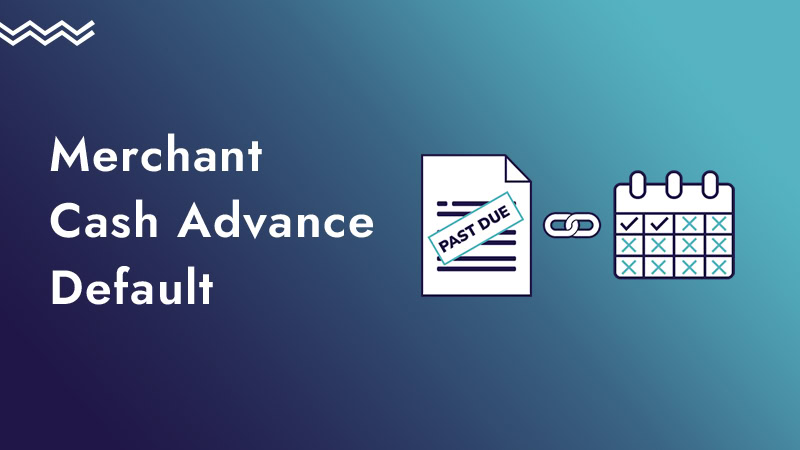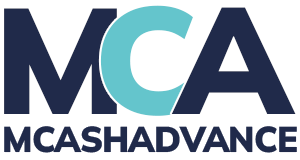
If you’re falling behind on your merchant cash advance (MCA) payments, you’re not alone. Many business owners have faced this situation. Defaulting can feel overwhelming, but it doesn’t have to end badly. The key is knowing what causes a default, what happens next, and how to get ahead of it before things escalate.
What MCA Default Means
You’re in default when your business fails to meet the repayment terms. MCA payments are deducted daily or weekly from your sales. If a payment fails, most providers consider that a default.
You can also default if:
- Your sales drop below a required threshold
- Your bank returns multiple payments
- You take another MCA without approval (called stacking)
- You breach other terms in the agreement
In most cases, defaults are triggered automatically. Systems detect the issue as it happens.
What Leads to Default
Defaults usually don’t happen all at once. They build over time as pressure increases. The most common patterns include:
- Slowing or seasonal sales
- Low daily balances
- Repeated overdrafts
- Taking on multiple advances
Some business owners ignore these signs. Others try to solve it by stacking more funding. Both paths usually make things worse.
What Happens After a Default
Once a default happens, the recovery process begins. Your MCA provider will follow the steps outlined in your agreement to collect the remaining balance.
Collection Attempts
The provider will typically try to recover funds through ACH withdrawals or split-processing. If those fail, they may freeze your business account or sweep any available funds.
Legal Action
If collection attempts don’t succeed, legal action may begin. A confession of judgment or cognovit note, if included in your agreement, allows your provider to secure a court judgment without a hearing. That gives them the legal right to collect through garnishment or seizure.
Personal Liability
If you signed a personal guarantee, you remain responsible for the balance even if the business closes. In some cases, providers have frozen both business and personal accounts after a judgment is secured.
Credit and Business Impact
MCAs don’t appear on your credit report. But court judgments do. If your provider secures a judgment, it will show up on your business credit report. If a personal guarantee was involved, your personal credit could be affected too.
Defaults can also disrupt day-to-day operations:
- Business accounts may freeze
- Payroll and vendor payments may be delayed
- Collections activity may damage your reputation
The earlier you act, the better your chances of avoiding these outcomes.
How to Avoid Default
Many defaults are preventable. These are the steps we recommend to stay ahead of the risk:
- Watch your balances. Make sure there’s enough to cover payments.
- Know your revenue trends. Seasonal dips or delays can put you at risk.
- Contact your provider early. Let them know before a payment fails.
- Avoid stacking. Taking another advance increases your risk of default.
- Be transparent. If your sales have dropped, show your numbers.
Most providers are more flexible when you’re honest and proactive. They may offer to adjust your payment terms or give you a short pause if you ask in time.
If You’ve Already Defaulted
Default doesn’t mean your business is over. You still have options to recover.
Modified Repayment
You may be able to set up a new payment plan based on updated revenue.
Renewal or Refinance
Some providers offer a new advance that pays off the old one. This only works if your business is still producing steady revenue.
Consolidation
If you’ve defaulted on multiple advances, a specialist may help you combine them into one repayment with better terms.
Legal Settlement
If legal action hasn’t been filed yet, you may be able to negotiate a settlement for less than the full amount.
Exit or Bankruptcy
If your business can’t recover, a financial advisor or attorney can help you understand what you still owe and what protection you may have.
Key Clauses to Understand
Before you take an MCA or if you already have one, take a closer look at these sections in your agreement:
- Confession of Judgment – Allows immediate legal action without trial
- Cognovit Note – Similar to confession, valid in certain states
- Personal Guarantee – Makes you personally liable if the business fails
- UCC Lien – Gives your provider a claim on business assets
- Default Clause – Explains what triggers legal or collection action
Understanding these terms now can save you major stress later.
If you’re behind on payments, contact your MCA provider now. If your provider is us, reach out directly. We handle these situations every week. It’s always better to talk early. In most cases, we can adjust the terms or offer options to avoid legal action. The sooner you get in touch, the more we can do to help.

